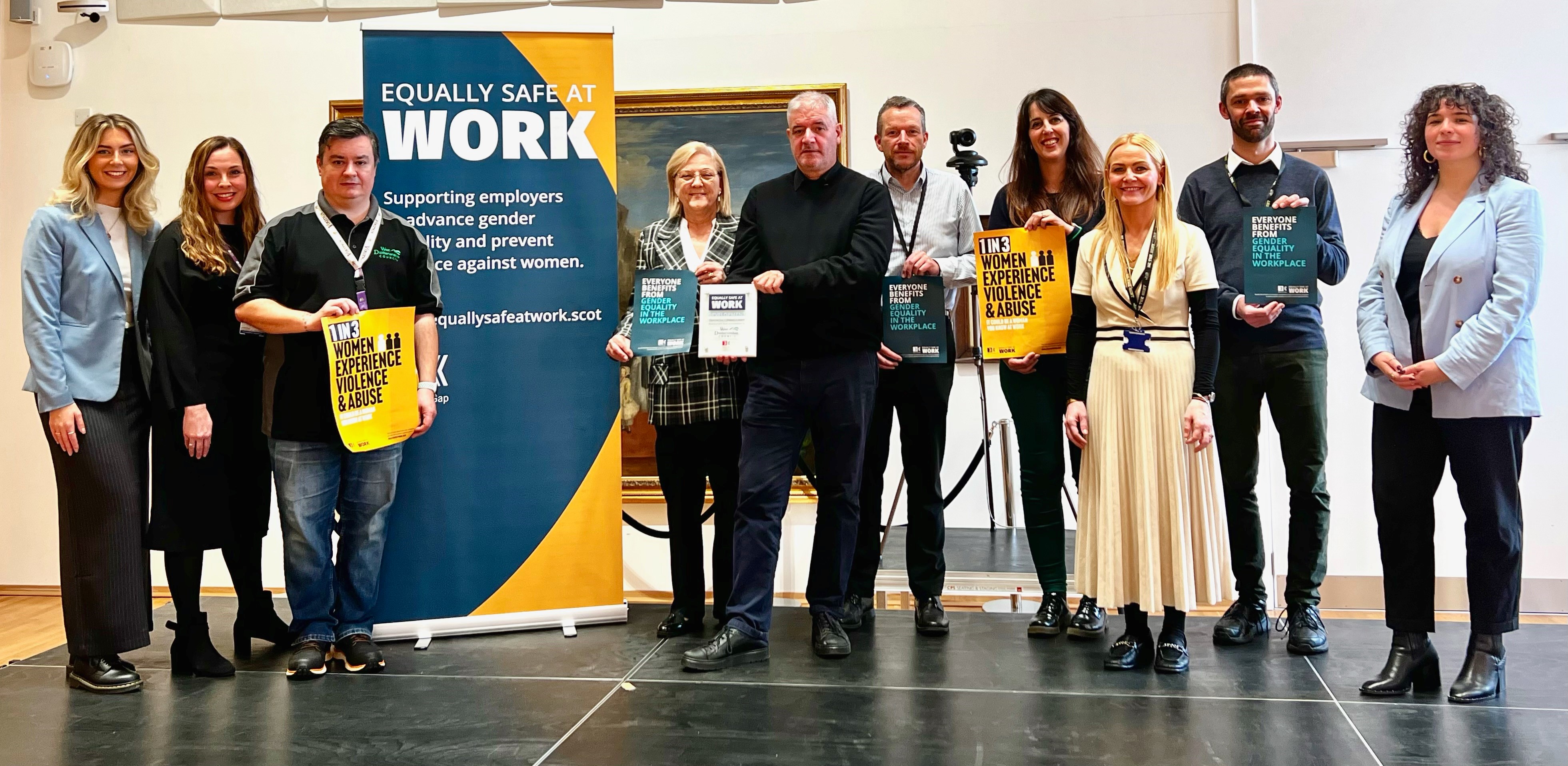Published 15 November 2023
West Dunbartonshire Council has further strengthened its commitment to gender equality in the workplace through Equally Safe at Work (ESAW) accreditation.
The Council, who joined the programme in 2022, created the ESAW working group with officers from a range of Council services and Elected Members.
The group worked with ESAW to earn the ‘Development Accreditation’ through attending training and adapting and developing policies and practices to further support equality at work and prevent violence against women.
The programme developed by Close the Gap, Scotland’s expert policy advocacy organisation working on women’s labour market participation, supports employers in the public and third sector to prevent violence against women (VAW) and advance gender equality at work.
Councillor June McKay, a member of the ESAW working group, said: “The ESAW working group are thrilled to have earned the Equally Safe at Work accreditation. The team has done a fantastic job in undertaking the training and the work required to achieve this accreditation. This further cements the council’s commitment to ensuring gender equality and our aim to stop violence against women.”
Anna Ritchie Allan, Executive Director of Close the Gap, said: “We’re delighted to award development accreditation to West Dunbartonshire Council which is a sector leader on gender equality at work. Violence Against Women affects all aspects of women’s lives, including the workplace. It can make it difficult for victim-survivors to do their job well, prevents them from progressing, and in some cases forces them out of their job altogether. For employers, this can mean reduced productivity, the cost of managing unplanned absences, and higher staff turnover.
“The Equally Safe at Work programme is a tried and tested way for employers to improve their practice, tackle the gender pay gap and better support victim-survivors in the workplace. Employers that take steps to advance gender equality at work are more innovative, more productive, better able to manage skills gaps, and are more protected from the costly risk of discrimination.”
